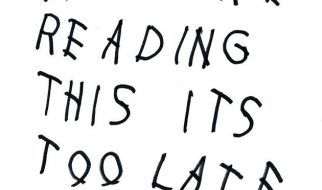COLLEGE
 Photo by Kaitlyn Baker on Unsplash
Photo by Kaitlyn Baker on Unsplash
At some point during your college career, you will need to ask a professor (or supervisor, mentor, etc) for a letter of recommendation. This may be for a job on or off campus, a scholarship, an internship, or entrance into graduate/law school. A recommendation letter could be the difference between getting offered a position and receiving that sweet rejection letter.
Let me start by stating the obvious: It is much easier to ask your professor to write you a letter if you have a personal relationship though attending office hours or being engaged in class. However this sometimes is not possible when attending a large university (although I do challenge you to try). Here are some tips to follow when it comes time to ask for a letter of recommendation, regardless of how well you believe your professor knows you:
Give plenty of time.
You want the person writing your letter to not feel rushed. The easier you make it for them to complete the recommendation on time, the better. My suggestion is to give as much time as possible for them to write your letter, with a minimum of two weeks. Asking last minute signals you were not prepare and that might be reflected in the letter.
If for some reason you need to ask for a last-minute letter, be sure to give a very good reason as to why. Also, do not feel upset if your professor says no to a late request, they most likely have multiple letters to write at any given time.
Meet with the individual in person.
Setting up an appointment and meeting face-to-face to ask for a recommendation letter shows professionalism and will set you apart from other students. The person writing your letter will feel a stronger connection to you as a student. This doesn?t have to be a long meeting, just set up a time to give a little information about what you are applying for, why you are applying, and make the request. If they agree to submit a letter for you, be sure to ask what they need from you in order to write the best possible letter. Follow up with that information as soon as possible in an organized way. It?s not a good look to ask for a letter of recommendation and two weeks later send over your resume.
Sometimes it is not possible to meet face-to-face because the request is needed while you are away from campus or you may be an online student. If this is the case you want to compose a professional e-mail to your professor and let them know asking via email was not your first choice.
Email all relevant information (very important).
Make sure you provide the individual writing your letter with enough information to construct the best possible recommendation. Certain professors will give you specifics of what to provide but others may not.
I ask the following of my students. For me, this gives me the best information possible to make the letter personal. In fact, this article is what I send to every student who asks for a reference.
I suggest sending these following items along even if they are not requested by your letter writer:
- The class/semester/grade for each time you had the professor.
- The official name of the scholarship/job/internship/program you are applying for.
- Who the letter should be addressed to.
- A copy of your transcript.
- A copy of your resume.
- A brief paragraph or two on why you think you deserve this scholarship/job/internship or your personal statement for grad school.
- Specific areas you want the letter to focus on.
- When the recommendation is due.
- How the recommendation needs to be submitted.
- What pronouns you?d like to be used.
- A photo if you do not have a close relationship with the writer.
If you provide the above, your writer will recognize the work you put into the request and therefore will likely put in more effort on their end.
If you do not hear, remind.
Your professor is busy. Period. Sometimes things will slip their mind. Don?t feel like you cannot send a reminder email if the due date is approaching and you haven?t heard from them. This doesn?t mean email them every day, but you should feel comfortable sending a message if time is running out.
I tell students to remind me a week before the letter is due if they haven?t been in contact with me in a while. This is not annoying but rather shows your ability to stay organized and professional.
Send thank you notes
Make sure you are thanking your letter writers one way or another. There have been many times where I have spent time scripting a letter for a specific internship and once it has been sent off I never hear from the student again. Don?t do this. Sometimes the letter writer is contacted by the firm or university to give a more detailed recommendation. A simple thank you note goes a long way in showing professionalism and appreciation. Plus, you never know if you?ll need a future letter.
Let your letter writer know how it turned out.
If your professor takes time out of their busy schedule to write you a letter, they are investing in your future. Let them know how things turned out, good or bad. This can only build more social capital and make a strong connection. Again, you never know when you may need additional references and silence can sometimes burn bridges.
Many employers and graduate schools say recommendation letters are just as, if not more, important than class performance. Following these tips will help you get the most out of the recommendation process. Each person you ask will have different items they want and a different process they follow but the above will show them you are prepared.


